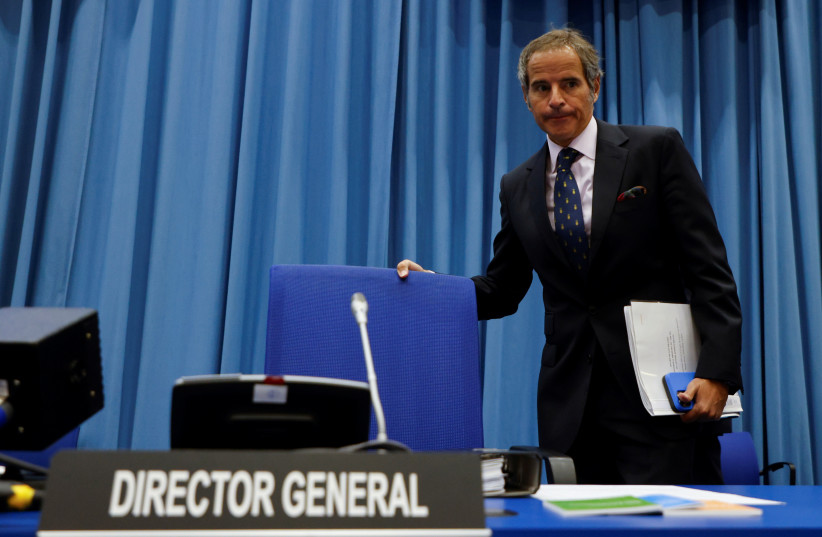Iranian Atomic Energy Organization (IAEA) Chief Mohammad Eslami arrived in Vienna on Sunday to participate in the IAEA’s General Conference, including crucial meetings with IAEA Director-General Rafael Grossi.
The IAEA Board of Governors is expected to issue a statement regarding Iran and the nuclear standoff in the near future, and the upcoming Eslami-Grossi meeting, following the IAEA chief’s emergency visit to Iran on September 12, is viewed as laying the groundwork.
If progress is made toward restoring IAEA inspectors’ access to the Islamic Republic’s nuclear sites, and possibly in clearing up some of the unexplained and undeclared illicit nuclear material and sites found in Iran, the IAEA Board may push off taking significant action.
In contrast, if the impression is that Tehran is still stonewalling the IAEA, as it has been doing at different levels since February 24 and May 24, the IAEA Board could condemn Iran like it did in June 2020, and even refer its nuclear violations to the UN Security Council.

Observers have indicated that Iran’s last-minute showing of a readiness to re-engage the IAEA was timed to stave off any major move against it at least until the next significant IAEA Board meeting in around three months.
Despite an initial deal that Grossi said would allow IAEA inspectors to replace their monitoring cameras at nuclear facilities, the Fars News Agency reported last Thursday that Eslami had said a large number of the cameras had been shut off.
This statement came days after Grossi announced that he had learned some IAEA cameras were destroyed during an incident in June when the Islamic Republic’s nuclear Karaj facility was attacked (attributed by Iran to the Mossad, validated by The Jerusalem Post.)
Last Thursday, Iran’s Representative at International Organizations in Vienna Kazzem Qaribabadi declared that Tehran would stick to its narrative about illicit nuclear material; namely, that it does not know the material’s origins and that the issue is unimportant for the future.
This past Friday, Eslami said that Iran’s Arak nuclear facility – for using a heavy water reactor for a plutonium path to a nuclear bomb – should be reactivated.
Under the JCPOA 2015 nuclear deal, Iran made the reactor core – a metal lattice that holds reactor fuel rods – unusable in 2016.
Already back in 2019, when Iran started to try to counter the US maximum economic pressure campaign, former Iran nuclear agency chief Ali Akbar Salehi said that Iran had purchased spare pressure tubes that would allow it to quickly reconstitute the reactor core.
Observers will closely watch whether Iran acts on reconstituting the core and returning Arak to being operational as an additional major violation of the JCPOA, or whether this was just another saber-rattling threat.
Taken together with other recent Iranian statements, the new government of Iran President Ebrahim Raisi still seems focused on ignoring past violations and securing more concessions from the US in exchange for ceasing its 60% uranium enrichment.
On Monday, Iranian Foreign Minister Hossein Amir-Abdollahian will leave for the UN General Assembly opening ceremonies.
He is expected to meet bilaterally with China, Russia, England, Germany, and France, but not the US.
Raisi himself will speak to the UN by video conference to avoid embarrassment and drawing attention to the fact that he entered office with human rights travel sanctions already applied to him due to mass executions of Iranians he presided over in an earlier post.
